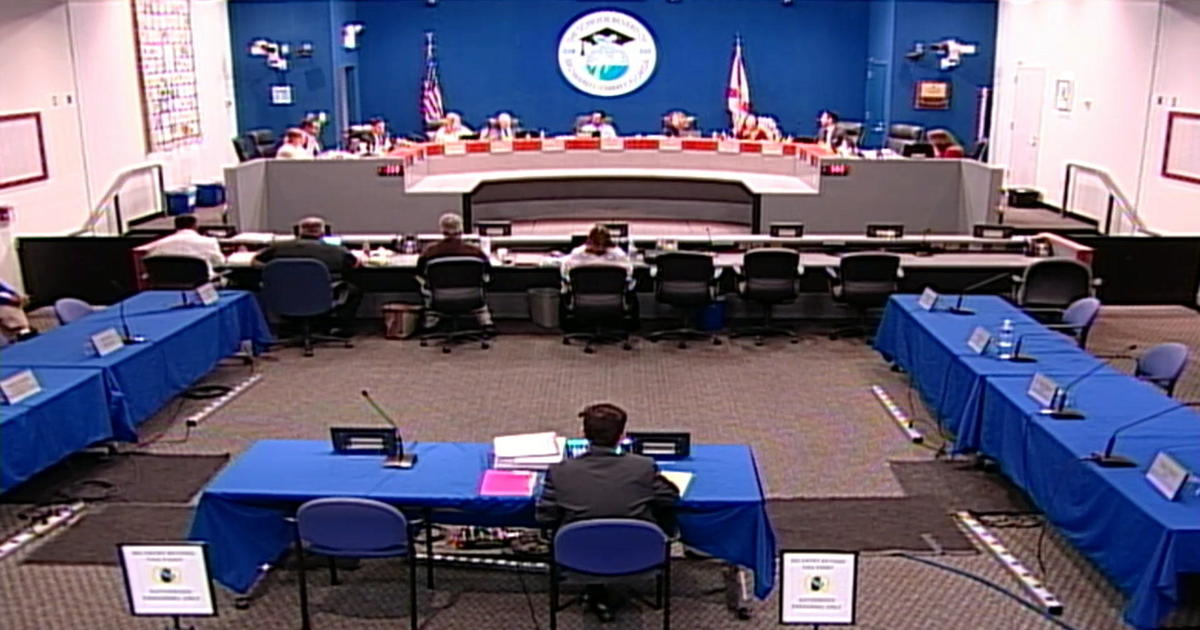Legislator Wants Attorney General To Force Travel Companies To Pay Tax
TALLAHASSEE (CBS4)- Armed with fresh documents that show online travel companies may have conspired to avoid paying more than $440 million in taxes in Florida, a state legislator is urging Attorney General Pam Bondi to force the travel giants to pay up.
The issue has been the focus of legal and political fights for years as counties and hotel companies have fought the online companies that sell unused hotel rooms to travelers looking for deals.
Counties argue that the companies should pay tourist development taxes on the total cost of the room charged to customers. The online travel companies say they should only pay taxes on the negotiated rate they pay the hotels — not on what they keep in profit, according to CBS4 new partner the Miami Herald.
Former Attorney General Bill McCollum sued Expedia and Orbitz in 2009 for unfair trade practices. But Bondi, who succeeded him in January, put the lawsuit on hold during the legislative session as lawmakers attempted to exempt the travel companies from paying the additional taxes, said Bondi spokeswoman Jennifer Krell Davis.
The bill died, but Bondi has neither revived the stalled lawsuit nor started her own investigation.
In a May 17 letter to Bondi, Rep. Rick Kriseman, D-St. Petersburg, urged her to prosecute the companies based on newly-discovered company documents. The documents show that lawyers for the companies advised their clients since 2003 to "make it as difficult as possible for any state to require us to collect occupancy tax" until they could change the laws to exempt them from paying it.
The documents, considered confidential by the companies, were released by a Georgia appeals court in January. They indicate that lawyers and accountants for Expedia and other travel companies believed they were at "high risk" of being required to pay hotel taxes in Florida. Although Expedia was not collecting the tax, the documents say the company was holding money in reserve "based on an estimate of uncollected taxes that we may ultimately owe."
Kriseman said that the emergence of the documents is evidence enough that Bondi should pursue the case and collect what the Department of Revenue says is as much as $440 million in unpaid state sales taxes and fees since 1999.
"The attorney general ought to be demanding that all of the money go to the state of Florida,'' he said. "If you or I failed to pay taxes, we'd be prosecuted for it. There seems to be a pattern here from both attorney general's office — and the governor's office — that they are willing to let big business off the hook."
Kriseman said he quietly sent the letter to Bondi a month ago because he wanted to alert her to the documents and hoped she would prosecute. Instead, he has gotten no response. "Not even a courtesy phone call or form letter,'' he said. "I'm stunned they wouldn't respond whatsoever ... If they don't respond to a representative, what do they do to the general public?''
Bondi's office told the Herald/Times that "the lawsuit is pending" and would not acknowledge receipt of Kriseman's letter.
The issue is a dicey one for Bondi. She inherited the lawsuit after McCollum left office and quickly faced the pressure from tax-averse lawmakers who filed a bill to clarify what they considered a vague law.
Current law requires Florida hotels to pay a "transient rentals tax" — similar to the state sales tax — on the rate they charge the consumer for the room. But the online travel companies say they are not obligated to pay taxes on the difference between their negotiated rate and the rate the customer pays.
Jennifer Green, a lobbyist for Expedia, said the documents "have been taken out of context to make it look like these companies are basically committing fraud," she said. "No court has ever indicated that they have stolen tax dollars."
Others states, including Texas, Georgia and Hawaii, have filed claims against the companies for withholding taxes and several cities in California, and Washington, D.C., also have pending lawsuits.
The online travel companies say the money they collect is a service fee, not a tax. "Every penny of tax owed on the room rate is remitted to the hotel along with the cost of the room,'' said Andrew Weinstein, spokesperson for the Interactive Travel Services Association, a trade organization representing the online companies. "The service fees charged by the companies are not subject to tax under Florida law."
But the documents from 2006 and 2007 also show that the companies have carefully crafted their language — at one point saying there would be "no use of the word 'collect' in any context' when referring to taxes because "that is a slippery slope to being liable for taxes."
The companies argued that the documents were protected by attorney-client privilege, but a special master in the Georgia case ordered them released under the crime-fraud exemption.
Marion T. Pope, a former chief judge of the Georgia appeals court assigned to handle the document dispute, said that Orbitz and other companies may have used their lawyers to aid them in a committing a crime or a fraud because of their calculated effort "to circumvent state and local statutes and ordinances in an effort to evade the payment of hotel occupancy taxes."
The online travel companies challenged Pope's ruling and an appeals court upheld the judge's decision in January.
Several Florida counties have sued the companies for unpaid taxes, with some having reached settlements. Broward County, one of the most aggressive jurisdictions in the nation, has ordered the companies to pay $484,000 in tourist-development taxes, interest and penalties for taxes owed between July 2009 to June 30, 2010. Travelocity.com and Priceline.com counter-sued earlier this month, saying Broward acted unconstitutionally.



